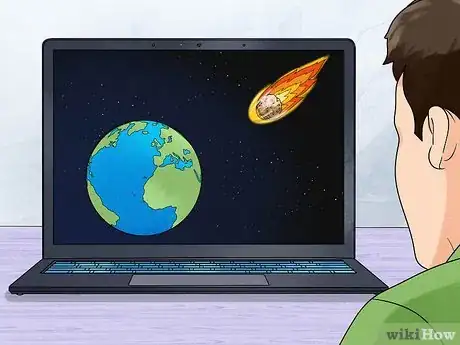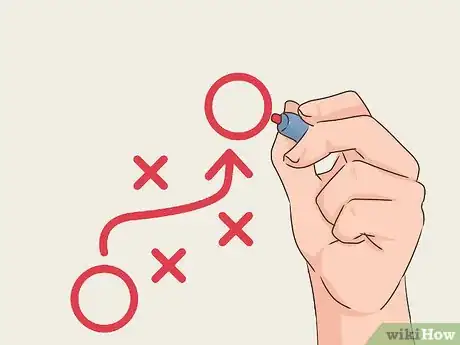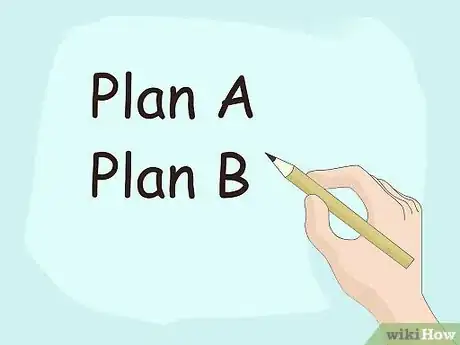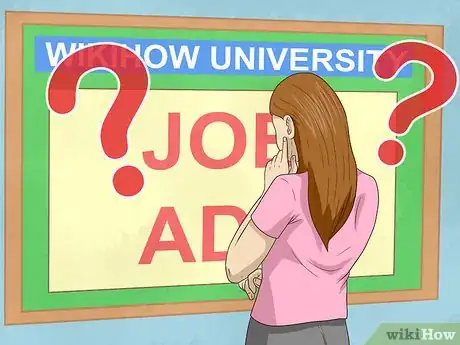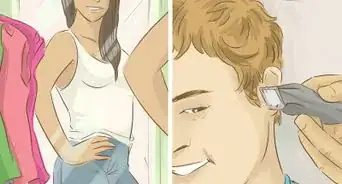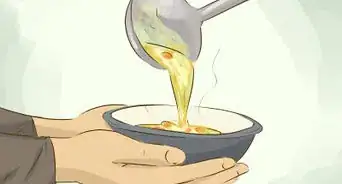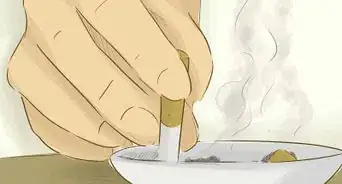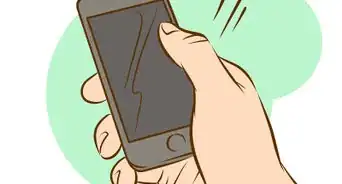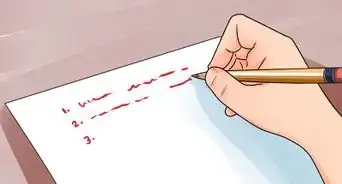This article was co-authored by Pete Canalichio. Pete Canalichio is a Brand Strategist, Licensing Expert, and Founder of BrandAlive. With nearly 30 years of experience at companies such as Coca-Cola and Newell Brands, he specializes in helping brands find the most authentic parts of their story to build a brand strategy. Pete holds an MBA from the University of North Carolina at Chapel Hill and a BS in Physics from the United States Naval Academy. In 2006, he won an MVP Award from Newell Brands for his contributions to their Global Licensing department. He’s also penned the award-winning book, Expand, Grow, Thrive.
This article has been viewed 1,899 times.
Making an impactful career choice is a crucial decision in life. There are many paths that you can take to contribute positively to the world, such as being a doctor, teacher or charity worker. However, you don't have to limit yourself to just those options. To have a lasting and meaningful impact, it's important to consider the problem you choose to tackle. The more pressing the issue is, the greater your contribution will be.
Steps
Define your Career Priorities
-
1Define what’s personally satisfying. Finding work that is personally satisfying can be a challenge. To ensure success, remember that your career is a marathon and not a sprint. Most people reach peak productivity between the ages of 40 and 60, so it’s important to choose something that you can stick with for the long term. When looking for meaningful work, consider what is:
- Meaningful
- Something you’re good at
- Engaging & where you have autonomy
- With supportive colleagues
- Has basic conditions (e.g. no long daily commute) and fits with your life (e.g. non-crazy hours).
-
2Define you career impact. To maximize your career's impact, consider the importance of the problem you are addressing, how effective your job is at tackling it, and your personal fit. Your personal fit depends on your abilities and career capital - skills, connections, and reputation. By taking into account all these factors, you can ensure that you have a long-term improvement in the lives of others.
Choose a Pressing Problem To Solve
-
1Define a pressing problem. Think hard about which problems you work on, as it might be your most important choice. The most pressing issues are:
- Big: What’s the magnitude of this problem? How much does it affect people’s lives today? How much effect will solving it have in the long run?
- Neglected: How many people and resources are tackling this problem? How well allocated are these resources?
- Solvable: How easy would it be to make progress on this problem? Do interventions already exist to solve this problem effectively, and how strong is the evidence behind them?
-
2Find a pressing problem. Identify an issue that seems big, neglected and solvable. You don’t need to research all by yourself—find a trusted person or organisation. Some of the most pressing problems include:
- Existential risks that threaten the destruction of humanity’s long-term potential. These arise from artificial intelligence, biological hazards, great power conflict, nuclear security, and extreme climate change.
- Animal welfare. Humans slaughter 70 billion land animals every year. That’s ten times the human population. Animal lives on factory farms are miserable.
- Global health and development. Eight hundred million people in developing countries live in absolute poverty—with less than $1.90 per day. Five million children die every year, mainly from preventable causes.
Set a Long-term Career Goal
-
1Explore the key categories of impactful careers. Before thinking about specific career paths, it’s valuable to consider what kinds of careers tend to have the highest impact. The career categories below can enable you to make a big contribution to whichever global problems you think are most pressing:
- Government and policy in an area relevant to a top problem. Work out how government policy can help solve the most pressing issues, and help make those policies happen.
- Organisation-building at effective nonprofits. Help build great organisations doing important work via entrepreneurship, operations, people management, project management, fundraising, or administration.
- Research in relevant areas. Aim to make intellectual advances about how to tackle the world’s most pressing problems.
- Apply an unusual skill to a needed niche. A wide variety of skills is needed. If you already have expertise in a narrow area, there might be a way to apply it to a pressing global problem.
- Communication. Convey important ideas and information in a compelling way, and you can help others focus on the right things and work more effectively.
- Earning to give. Take a job that fits you well and lets you contribute financially to funding-constrained, highly-effective organisations.
-
2Create a strategy. Career strategy has three basic steps: explore, take bets on paths that build your strengths, and then use your strengths to solve pressing problems.
- Explore. Early on (<25 years old), run experiments to learn about yourself. Use summer internships. Read about topics you’re interested in. Talk to people you admire.
- Invest. Later (26-35 years old), invest in your career capital (skills, connections and credentials that put you in a better position to make a difference in the future).
- Deploy. When you have lots of career capital (36+ years), use it to address the greatest needs within the most pressing problems.
Explore Short-term Career Options
-
1Find your next career move. Once you have ideas for longer-term paths, get very specific about concrete jobs/education/side projects you might take. Generate a long list of options—most people consider too few. Then compare them in terms of the following factors:
- Career capital
- Impact
- Personal fit
- Information value you’ll gain from testing them out
- Other personal priorities.
-
2Have a plan B and a plan Z. List promising alternatives you can switch to if your plan A doesn’t work out. If you’re ambitious enough, your plan A probably has a good chance of not working out—so you should be ready to try again.To avoid unacceptable risks, write a plan Z—how you’ll get back on your feet if things go wrong. For example, you might move back to your parents’ home for two months, work in a local cafe and replan your career.
-
3Run cheap tests. Investigate your key uncertainties like a scientist. Start with the least costly ways to learn more (like reading online) and then take more expensive steps (like doing a trial project) if you’re still uncertain.
- Speak to people in the area
- Use the summer for valuable internships
- Volunteer
- Read about topics you’re interested in
-
4Check high-impact job boards. Find vacancies in a curated list of high-impact jobs. 80,000 Hours lists open positions that directly address some of the world’s most pressing problems, while others may help you build the career capital you need to have a big impact later. Check out the 80,000 Hours Job Board.
-
5Get free 1:1 advice. Career planning can be tough to do by yourself. 80,000 Hours is a nonprofit that provides research and support to help students and graduates switch into careers that effectively tackle the world’s most pressing problems. Their advisors can help you choose your focus, make connections, and find a fulfilling job to tackle one of the world’s most important problems. Apply to speak with 80,000 Hours.
Spread the Word
-
1Talk to a friend. Share your personal story. By inspiring another person to make a difference in their career, you multiply your impact.
-
2Gift a free book. Here are three books for building a successful career focused on tackling the world’s most pressing problems. Get your free copy here.
- The Precipice: Existential Risk and the Future of Humanity by Toby Ord
- 80,000 Hours: Finding a Fulfilling Career That Does Good
- Doing Good Better: Effective Altruism and How You Can Make a Difference by William MacAskill
-
3Join an impact-oriented community. Discussing things with others is often the best way to make progress on your questions. Effective altruism is a global community with thousands of members. Here are some ways to get connected:
- Join a virtual program to discuss these ideas in a series of online meetups, hosted by experienced facilitators
- Find an effective altruism event, from live conferences to in-person and virtual meetups
- Join an effective altruism group, either locally or online
Expert Q&A
-
QuestionHow do I make a meaningful impact in my career?
 Pete CanalichioPete Canalichio is a Brand Strategist, Licensing Expert, and Founder of BrandAlive. With nearly 30 years of experience at companies such as Coca-Cola and Newell Brands, he specializes in helping brands find the most authentic parts of their story to build a brand strategy. Pete holds an MBA from the University of North Carolina at Chapel Hill and a BS in Physics from the United States Naval Academy. In 2006, he won an MVP Award from Newell Brands for his contributions to their Global Licensing department. He’s also penned the award-winning book, Expand, Grow, Thrive.
Pete CanalichioPete Canalichio is a Brand Strategist, Licensing Expert, and Founder of BrandAlive. With nearly 30 years of experience at companies such as Coca-Cola and Newell Brands, he specializes in helping brands find the most authentic parts of their story to build a brand strategy. Pete holds an MBA from the University of North Carolina at Chapel Hill and a BS in Physics from the United States Naval Academy. In 2006, he won an MVP Award from Newell Brands for his contributions to their Global Licensing department. He’s also penned the award-winning book, Expand, Grow, Thrive.
Brand Strategist & Licensing Expert It's so important that you align the work you do with what you exist for. If you understand why you do what you do, then you can understand what you do and how you should it. For example, being a good leader starts with understanding that you are in charge to help those that work for you to have a more valuable impact on their work. Your job is to really support them and give them recognition—and when they thrive, you'll thrive.
It's so important that you align the work you do with what you exist for. If you understand why you do what you do, then you can understand what you do and how you should it. For example, being a good leader starts with understanding that you are in charge to help those that work for you to have a more valuable impact on their work. Your job is to really support them and give them recognition—and when they thrive, you'll thrive. -
QuestionHow do I become a better team player at work?
 Pete CanalichioPete Canalichio is a Brand Strategist, Licensing Expert, and Founder of BrandAlive. With nearly 30 years of experience at companies such as Coca-Cola and Newell Brands, he specializes in helping brands find the most authentic parts of their story to build a brand strategy. Pete holds an MBA from the University of North Carolina at Chapel Hill and a BS in Physics from the United States Naval Academy. In 2006, he won an MVP Award from Newell Brands for his contributions to their Global Licensing department. He’s also penned the award-winning book, Expand, Grow, Thrive.
Pete CanalichioPete Canalichio is a Brand Strategist, Licensing Expert, and Founder of BrandAlive. With nearly 30 years of experience at companies such as Coca-Cola and Newell Brands, he specializes in helping brands find the most authentic parts of their story to build a brand strategy. Pete holds an MBA from the University of North Carolina at Chapel Hill and a BS in Physics from the United States Naval Academy. In 2006, he won an MVP Award from Newell Brands for his contributions to their Global Licensing department. He’s also penned the award-winning book, Expand, Grow, Thrive.
Brand Strategist & Licensing Expert Try taking a diagnostic test like the Enneagram. There are 9 different types of designations—if you know what your and your teammates' type is, you can all understand each other better and be more impactful. The 6 Types of Working Genius and Clifton Strengths Finder are also good resources.
Try taking a diagnostic test like the Enneagram. There are 9 different types of designations—if you know what your and your teammates' type is, you can all understand each other better and be more impactful. The 6 Types of Working Genius and Clifton Strengths Finder are also good resources.
Expert Interview
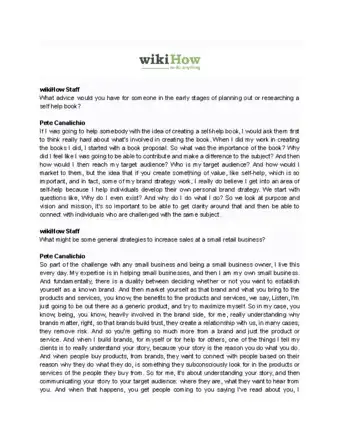
Thanks for reading our article! If you'd like to learn more about being an entrepreneur, check out our in-depth interview with Pete Canalichio.



